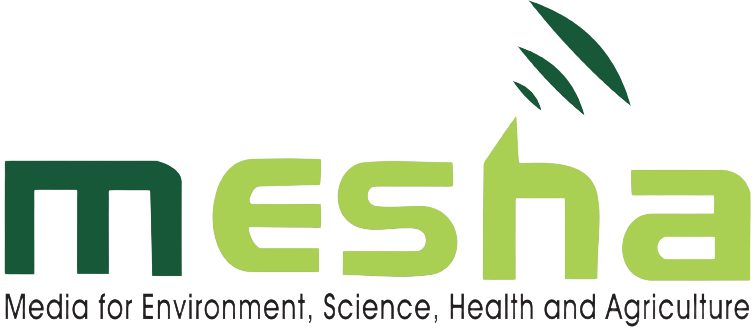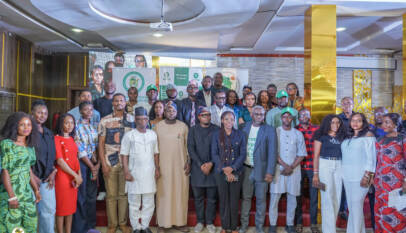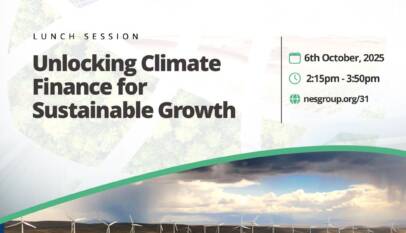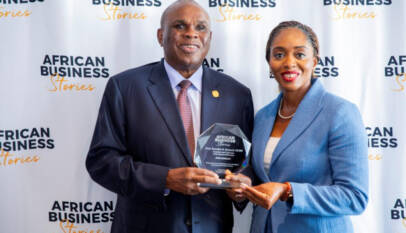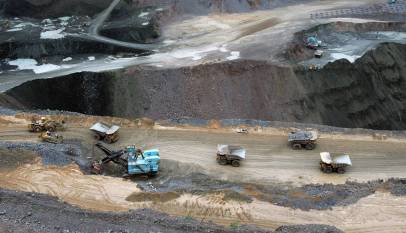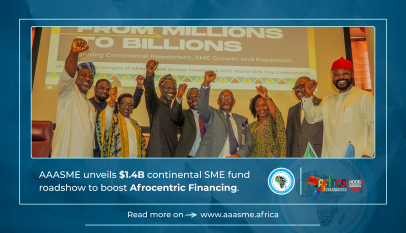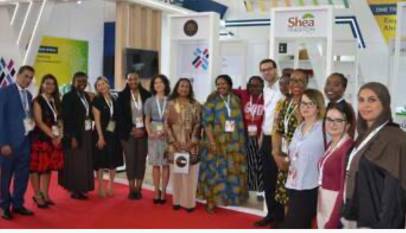TRIBUTE | MESHA@20: A Personal Testimony
As the Nairobi-based Media for Environment, Science, Health and Agriculture (MESHA) celebrates its 20th anniversary, African Newspage Editor-in-Chief Adam Alqali pens a heartfelt tribute to the nonprofit that helped shape his journey as a journalist.
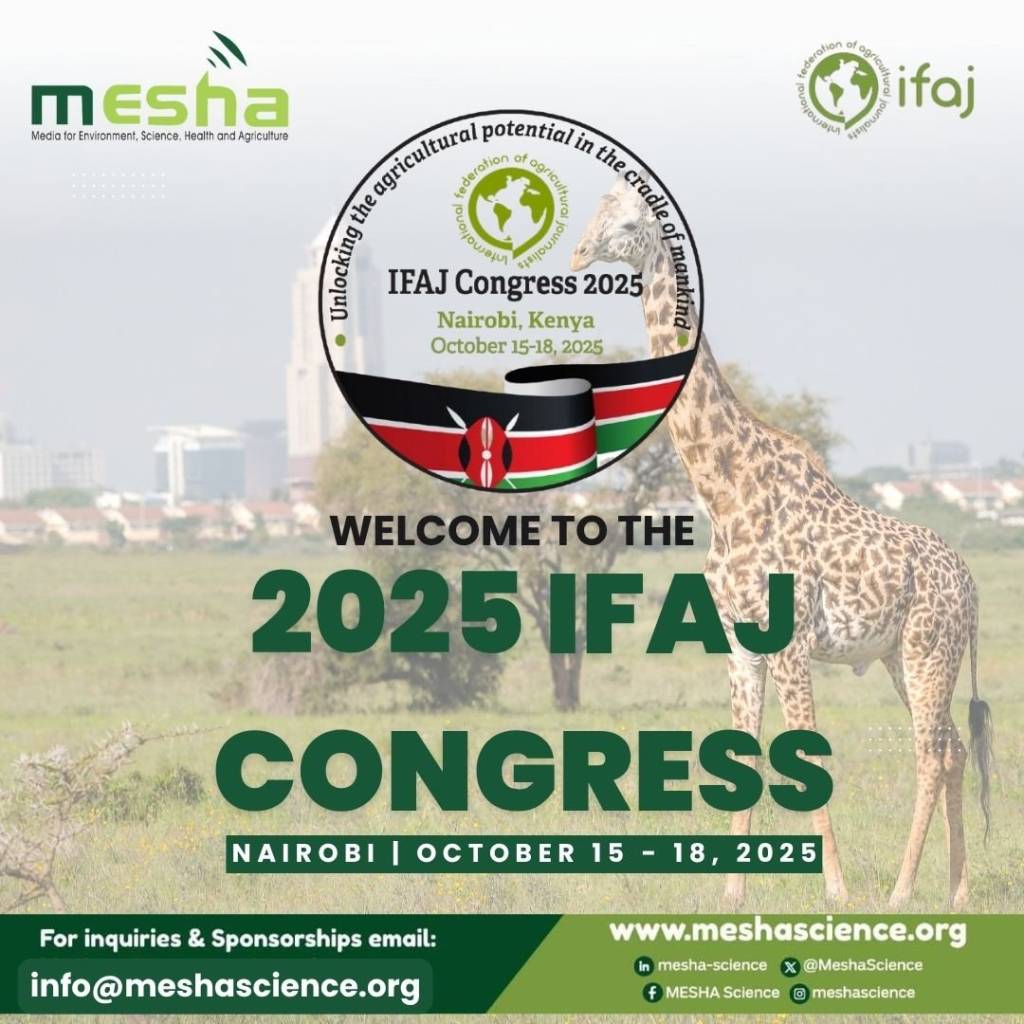
The story of my career as an international award-winning journalist would not be complete without mentioning the Nairobi-based Media for Environment, Science, Health and Agriculture (MESHA), a membership association of journalists, scientists, and communicators.
MESHA came into being because, although there were many journalists and communicators in the fields of agriculture, environment, health, and development in Kenya, there was no platform for them to interact, exchange information, and deliberate on ways to improve media coverage of these issues.
The media nonprofit, which is celebrating its 20th anniversary this year, was founded in 2005 as a nonprofit to champion the interests of science journalists in Kenya and Africa. I am proud to say I am not only a beneficiary of MESHA’s trainings for journalists, but that the training was career-shaping for me.
It all began at 15:47 WAT hours on Monday, September 26, 2016, when I received an email from Aghan Daniel, MESHA’s Secretary, confirming my selection to participate in an upcoming training on infectious diseases for non-science African journalists. Exactly a week earlier, I had submitted my application to participate in the training being organized by MESHA in collaboration with the World Federation of Science Journalists (WFSJ).
In my reflection piece, I said the training left me “convinced that science reporting could be an integral part of the Science, Technology, and Innovation (STI) component of the UN’s Sustainable Development Goals (SDGs) implementation in Africa. By translating complex scientific jargon into simpler, understandable language for the consumption of both policymakers and the general public, science journalism will foster public interest in STI issues.”
For me, beyond the takeaways, the MESHA/WFSJ training launched my international career as a journalist, opening the floodgates of international workshops and conferences. My career took a turn for the better as I began getting opportunities, which I now share with my team members at African Newspage. Since then, I have been back in Nairobi more than ten times, either to attend workshops or cover conferences by the African Union and United Nations.
I have also gone ahead to win many awards and media fellowships, including the 2018 West Africa Media Excellence and Conference Awards (WAMECA) in SDGs reporting. In May 2017, I won the International Travel Fellowship of the 10th World Conference of Science Journalists (WCSJ) held in San Francisco. Equally, I am pleased to have mentored younger journalists, some of whom write for the world’s leading science publications like Nature.
Beyond training science journalists, MESHA has built a track record of hosting high-profile congresses and conferences bringing together journalists, scientists, donors, and communicators from Africa and beyond. MESHA believes science must be answerable to the public, hence the necessity of finding new and innovative ways of effectively communicating about the benefits of science.
Over time, MESHA realized a crucial missing link in Africa: an effective and result-oriented continental entity to solidify Africa’s gains in science journalism by keeping science journalists up-to-date on the latest trends, providing training and networking opportunities for journalists, policymakers, and communicators. Thus, MESHA stepped in to fill the void by initiating the African Conference of Science Journalists, which has been held five times: 2012, 2014, 2018, 2020, and 2023.
In 2025, MESHA is making history with the hosting of the 2025 Congress of the International Federation of Agricultural Journalists (IFAJ), the biggest global gathering of agricultural journalists happening for the first time in Africa outside of South Africa, which hosted it in 2004 and 2017. The Congress will be a game-changer by driving conversations, connections, and innovations that will shape the future of agri-journalism worldwide.
The media nonprofit believes in fostering networking and collaboration between scientists, journalists, and the government for better communication. In achieving this, MESHA collaborates with bodies such as the World Federation of Science Journalists (WFSJ); Canada’s International Development Research Centre (IDRC); the Africa Biodiversity Collaborative Group (ABCG), and the African Institute for Development Policy (AFIDEP), the CGIAR, icipe, Centre for Science and Environment – India among others.
To foster continued dialogue between scientists, advocates, and journalists, MESHA has introduced a monthly media science café, a forum where technical and complicated health issues are broken down into everyday language for a better understanding of science reporting among journalists and the general public. Through the science cafes, MESHA is further entrenching science journalism in Africa.
Another milestone for MESHA is sponsorship for African journalists to cover COP meetings. Thus far, it has supported 20 journalists to cover COP27, COP28, and COP29 in Dubai and Baku, respectively. I am pleased to say African Newspage’s reporter, Temwa Mhone, was supported to cover both COP28 and COP29. Ahead of the COPs, MESHA trains the journalists to amplify key topics like African voices at COP28, carbon markets, and gender-sensitive climate reporting.
MESHA also publishes a quarterly informative science magazine called Sayansi, and runs a science mentorship program for African science journalists at all levels of career development. This ensures that once in MESHA, members do not see themselves as employees of specific media houses or research centres. By working closely with science journalists, both upcoming and experienced, MESHA continues to spread the gospel of science journalism in Africa!

